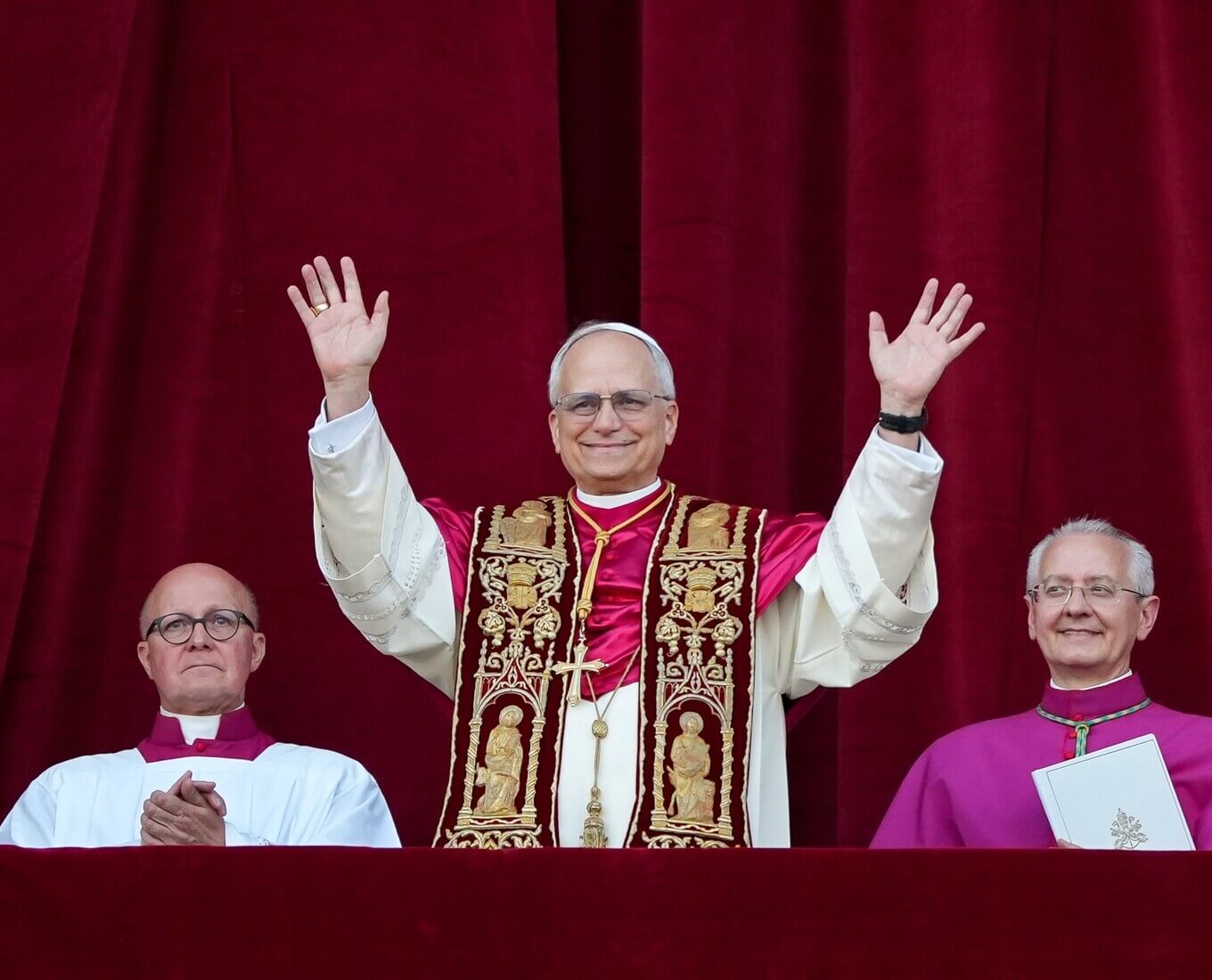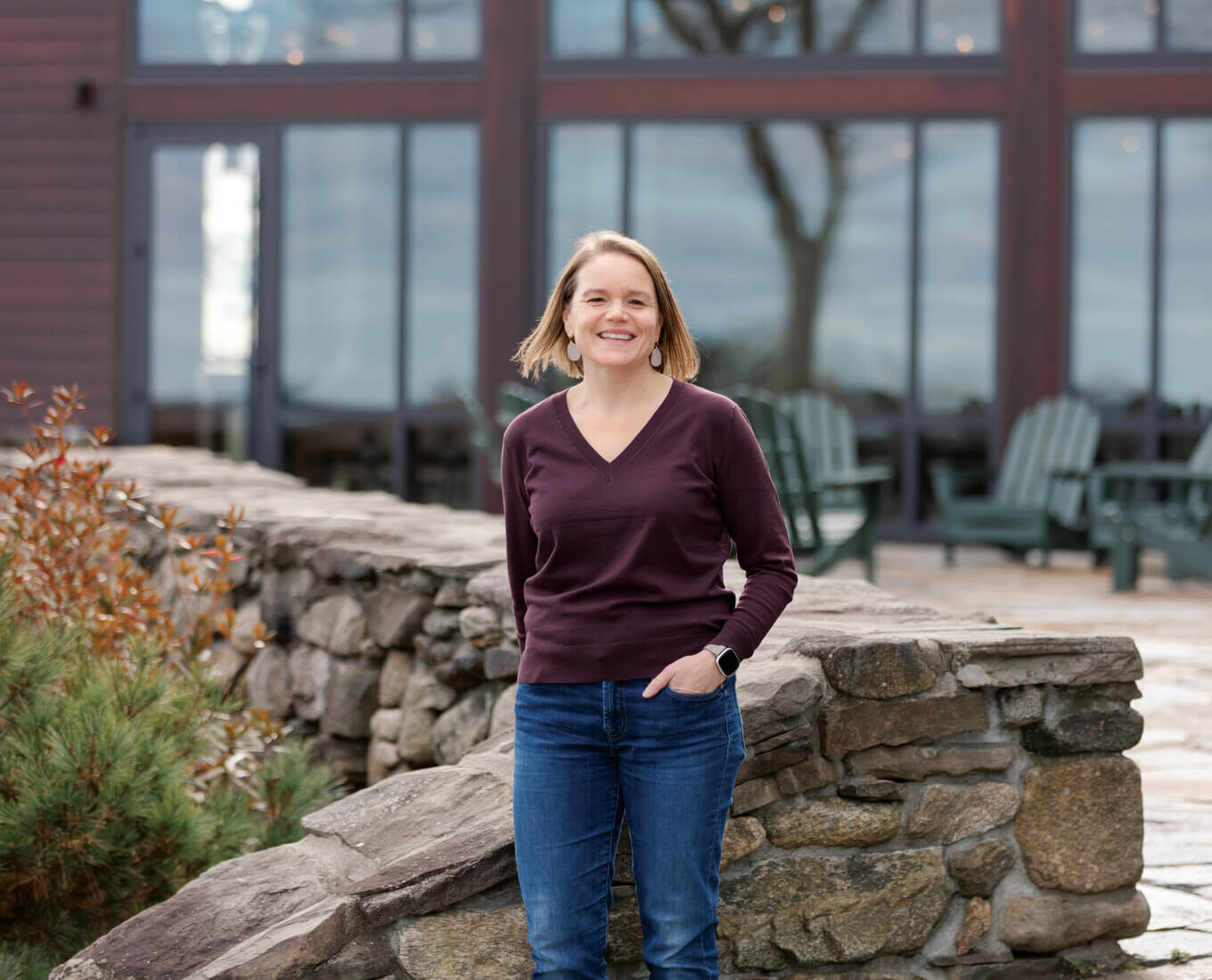
Nearly 30 students gathered on a March Zoom call to learn about the biological workings and political impact of a global pandemic, in today's class, the HIV/AIDS virus. It's nearly a year to the day since Gov. Charlie Baker locked down Massachusetts due to the COVID-19 outbreak, a milestone that is not lost on teaching team Geoff Findlay, associate professor of biology, and Denis Kennedy, associate professor of political science. This new interdisciplinary course, "Pandemic Policy: The Science and Politics of COVID-19," is their way of helping students in real time grasp how global pandemics are impacted by an understanding of science and public policy.
"It's been a rare opportunity to teach about pandemics during a pandemic," Kennedy notes, adding the shared experience has made the enthusiasm among the students "palpable."
Each topic is set up as a yin and yang: A disease is introduced by Findlay, who tracks its origins, pathology and treatments; then Kennedy walks through the political and public policy reaction. Halfway through the semester, the class has covered the Black Death (bubonic plague), cholera and the so-called Spanish influenza. In today's class, the HIV/AIDS pandemic is examined from a geographical point of view, focusing on how South Africa and the political and cultural climate of the 1980s and 1990s enabled the disease's rapid spread.
Kennedy engages the class in a discussion about the role of race, exclusion and political power in battling HIV/AIDS in that region. For instance, as one student points out, government-enforced segregation and mass relocation policies created economic and health disparities, especially among women, an issue addressed by their required reading of Frank M. Snowden's "Epidemics and Society."
The team-taught course is the brainchild of Findlay, who developed the idea at the conclusion of his recent research sabbatical. He partnered with Kennedy, a friend and colleague since they arrived at Holy Cross in 2013, to teach students that "the most effective solutions for big problems like a global pandemic will require integrating approaches from different academic areas," Findlay says. Later in the course, students will study COVID-19 in detail and then, as a project, make recommendations for how different governments should respond.
"Policy choices in a pandemic can be informed by an understanding of the biology of the infectious agent and possible treatments," Findlay says, adding that "scientists need to consider how their findings and recommendations will be heard by the public and policy makers, and tailor them accordingly without compromising scientific accuracy or integrity."
The intersection between science and politics is what caught the attention of biology major Andrew Ludwig '21. He has already learned that the two perspectives are inextricably linked and that "the public and political responses to each disease are shaped by the pathogen itself."
Eliza Caldwell '22, a political science major, says she feels similarly and that she selected the course to learn more about "the potential that COVID-19 has to permanently alter life in the U.S." She says she is most surprised so far by how much of a lasting effect historic global pandemics have had and how those effects are still visible today. "While these diseases might not threaten our lives like they once did, they still nonetheless are shaping them," she notes.
Findlay expects this intertwining of biology and policy considerations to continue when the class examines COVID-19. For example, when discussing vaccines, topics will include how vaccines work biologically; what types of vaccines can be most effectively distributed in different countries; what mechanisms exist for getting vaccines to developing countries; and how, biologically and politically, wealthier countries benefit from helping developing countries gain access to vaccines.
"This class has taught me more about the coronavirus itself, where it comes from and what it does to the human body," Caldwell says. "I feel like most of the population has neglected to learn more about the science of the coronavirus, but learning about the biology of the disease makes understanding the national security policies it begets so much clearer."
Coronavirus may become an annually circulating threat, akin to how influenza now behaves, which will make it a topic for years to come and keep the class in demand, Findlay says. He hopes the class will "inspire colleagues to think creatively about other ideas for team-taught multidisciplinary classes."
Adds Kennedy: "Geoff and I have been able to learn from each other and the class has certainly prompted me to reflect on things I've taken for granted, from assignment design to the concepts I introduce in class."
Course Catalog
CISS 299
Pandemic Policy: The Science and Politics of COVID-19
PROFESSOR
Geoff Findlay and Denis Kennedy
DEPARTMENTS
Biology and Political Science
DESCRIPTION
This course investigates the scientific and political factors that have shaped responses to the COVID-19 pandemic. The professors establish the biological, historical and institutional context for pandemic response, tracing the development of epidemiology and public health mechanisms through cases including the Black Death (bubonic plague), cholera, the 1918 influenza pandemic, HIV/AIDS and Ebola. The course also addresses the evolution, sources of authority and impact of international cooperative mechanisms like the World Health Organization and nongovernmental organizations. COVID-19 is then studied from a biological perspective, providing the class the scientific understanding to make recommendations about ideal public health guidelines. Those recommendations are then compared to responses pursued by national and international actors, and their implications for future pandemic response.
MEETING TIMES
Tuesday and Thursday
3:15 PM - 4:30 PM
CLASSROOM
Zoom
REQUIRED READING
- "Epidemics and Society: From the Black Death to the Present," Frank M. Snowden, Yale University Press, 2019
- "Pandemics: A Very Short Introduction," Christian W. McMillen, Oxford University Press, 2016
- "Crisis in the Red Zone: The Story of the Deadliest Ebola Outbreak in History, and of the Outbreaks to Come," Richard Preston, Random House, 2019
ASSIGNMENTS
- Readings
- Group presentation and infographic introducing a biological cause of a major pandemic
- Midterm exam
- Short analysis paper on the country's COVID-19 response
- Individual research project on the politics or science of pandemics
GRADES
- Class attendance and participation
- Quizzes
- Midterm exam
- Group project, individual project and short paper
PREREQUISITES
POLS 103 or POLS 102 or BIOL 161 or permission of the instructors
ABOUT THE PROFESSORS
- Geoff Findlay, associate professor of biology, earned a B.A. in biology from Carleton College and a Ph.D. in genome sciences from the University of Washington. His research is in the area of evolutionary genetics, with a particular focus on the origins and functions of reproductive proteins. His lab is currently funded by a National Science Foundation CAREER award. He has been a member of the Holy Cross faculty since 2013.
- Denis Kennedy, associate professor of political science, earned a B.A. in international relations, political science, and French from Bucknell University and a Ph.D. in international relations from the University of Minnesota. His publications have addressed topics including nonprofit governance and accountability, multilateral cooperation, and humanitarian imagery. He has been a member of the Holy Cross faculty since 2013.
Written by Sandra Gittlen for the Spring 2021 issue of Holy Cross Magazine.
About Holy Cross Magazine
Holy Cross Magazine (HCM) is the quarterly alumni publication of the College of the Holy Cross. The award-winning publication is mailed to alumni and friends of the College and includes intriguing profiles, make-you-think features, alumni news, exclusive photos and more. Visit magazine.holycross.edu/about to contact HCM, submit alumni class notes, milestones, or letters to the editor.

